A Legends of Localization reader asked about a phrase that often appears in Japanese video games: “Game Set”. Here are some examples from familiar games:
Ideas and Theories
I always just assumed this “Game Set” thing was related to the “game, set, match” phrase that you hear in some sports like tennis. But now that I think about it, “Game Set” by itself isn’t something I normally hear in English.
The reader pointed out that most of the examples above were made by or somehow involved Masahiro Sakurai, a famous Japanese game designer, and theorized that “Game Set” was a directorial signature of his. Still, I know I’ve seen the phrase in plenty of other Japanese games, so I don’t feel it’s a Sakurai-only thing.
So what’s the deal? Why is “Game Set” in so many Japanese games?
Japanese-Created English
First, it’s indeed possible that “Game Set” first came from the English phrase “game, set, match”. But regardless of its origin, “Game Set” eventually took hold in Japan as wasei eigo, a type of English phrase that was created in Japan.
Some other examples of wasei eigo in video games include:

Second, in Japanese, “Game Set” pretty much just means “the game is over” or “the match’s outcome has been decided”. The phrase has permeated the Japanese language and is used all the time when talking about competitive sports, primarily baseball:
In the first video above, the announcer even shouts “Game Set” like the announcer in the Super Smash Bros. series.
“Game Set” in Localization
I never found “Game Set” particularly awkward, but I’m guessing that’s because it’s been around in English games for so long. It appears that opinions about “Game Set” differ, though, as some Japanese-to-English localizers prefer to keep it as-is, while others prefer to change it slightly:
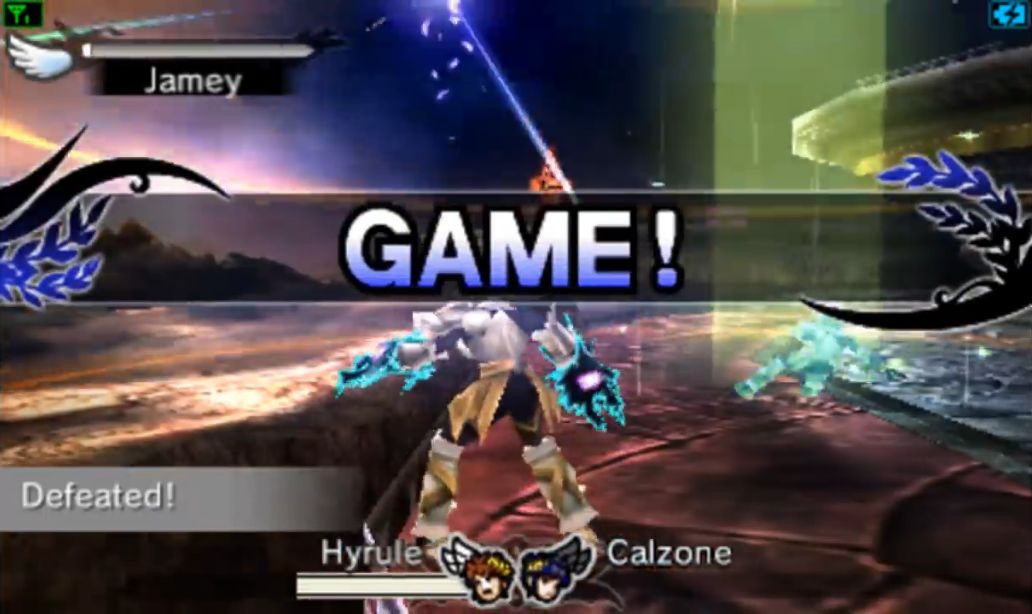
Final Thoughts
This has all pretty much been a long-winded way of saying that “Game Set” is a set phrase that’s used all the time in Japanese sports to indicate that a match is over, and that’s why it appears in so many Japanese video games. So “Game Set” isn’t particularly unique to Masahiro Sakurai’s games, he just happens to specialize in making games centered around competitive matches. Hopefully that makes sense.
Anyway, I know I’ve seen “Game Set” in a bunch of other games before, so if you can think of any, please let me know. And if you can think of any other silly phrases like “Goat In” or “Shine Get” that you’ve seen in video games, let me know that too. I think it’d be fun to look at more stuff like this in future articles!
If you liked this, check out my article about Japan's love of the word "LABO" or Japan's love of the word "let's". They're both interesting in their own unique ways, just like "Game Set"!


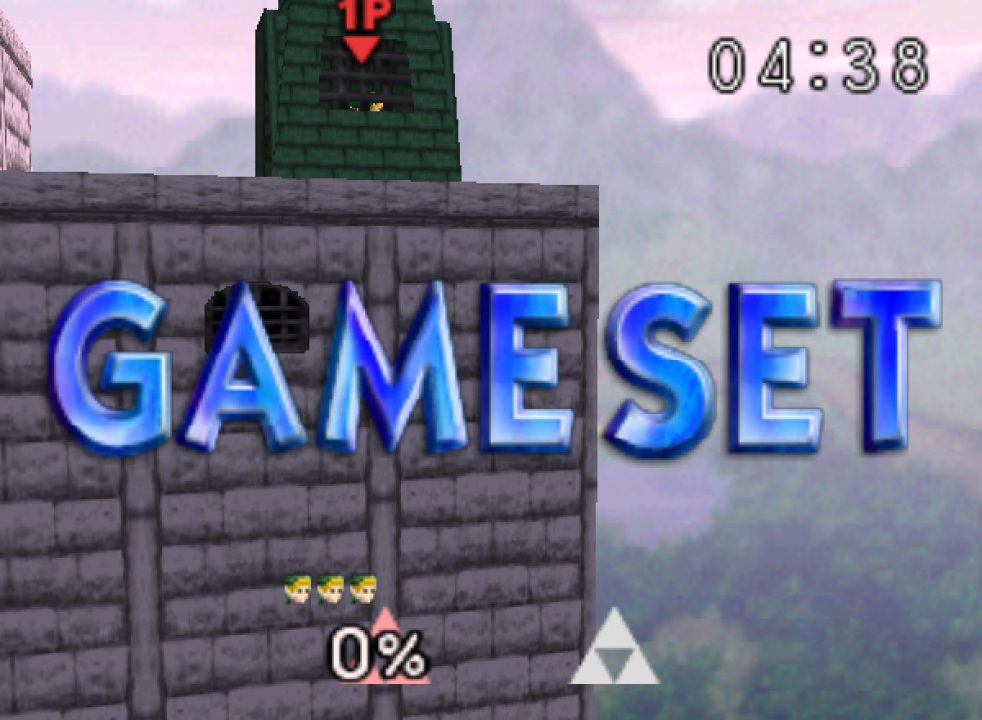
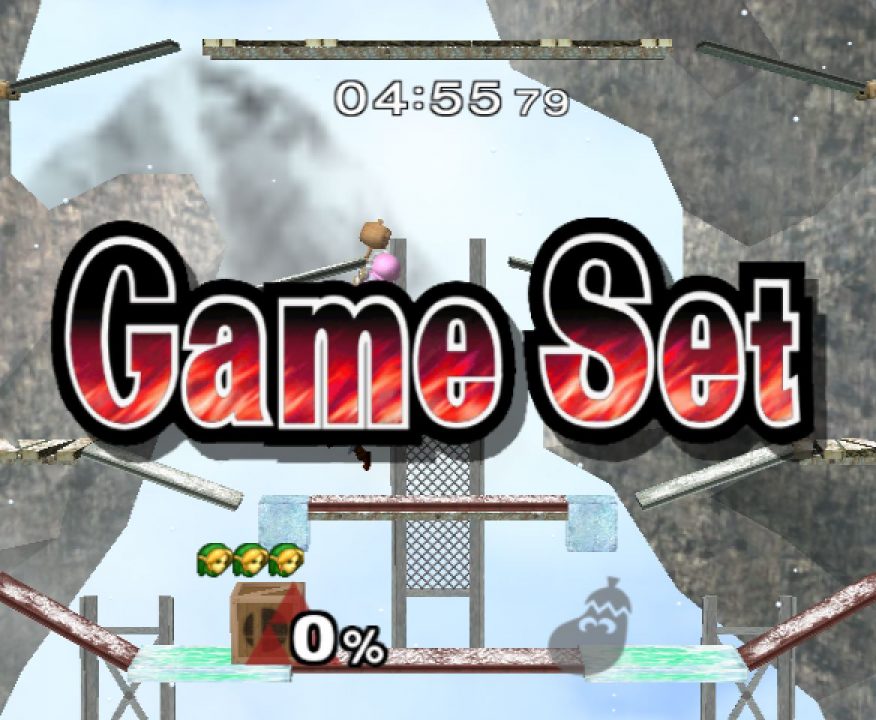
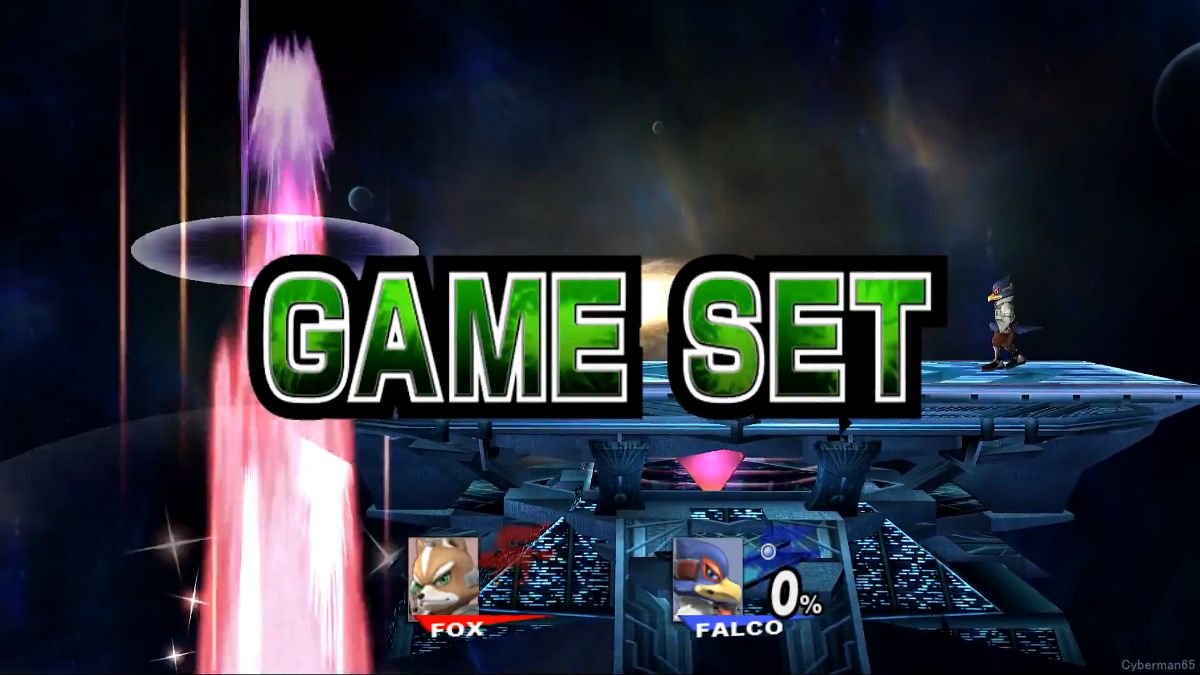
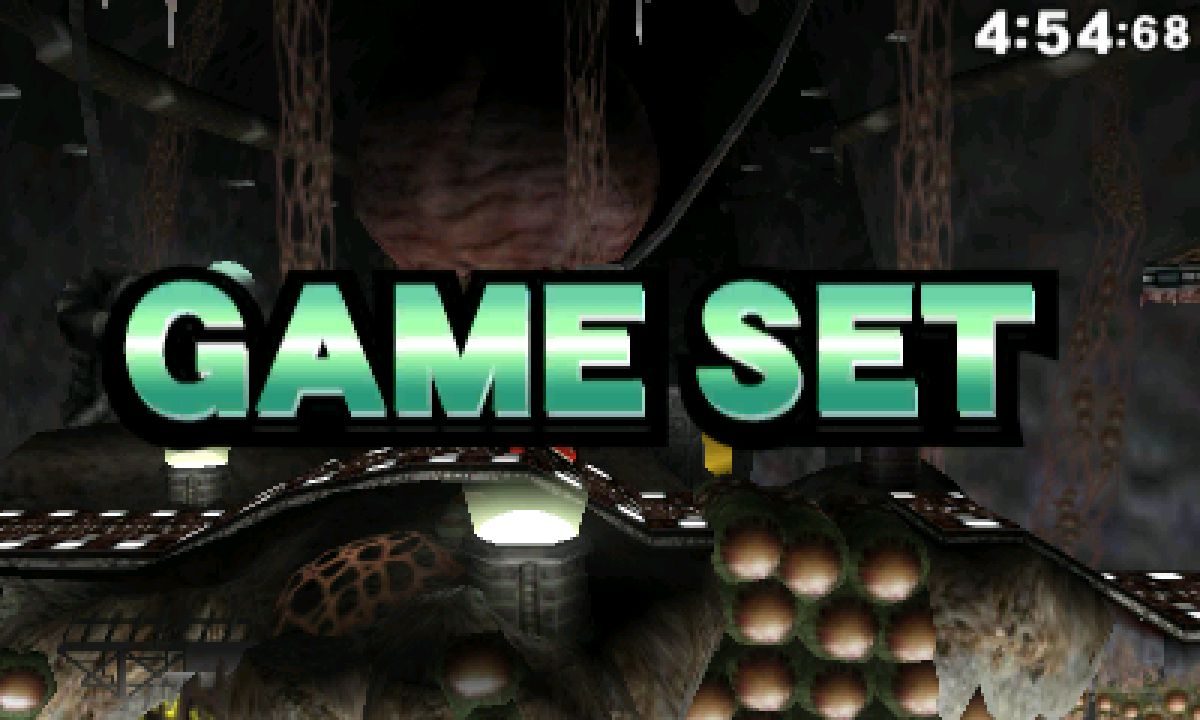
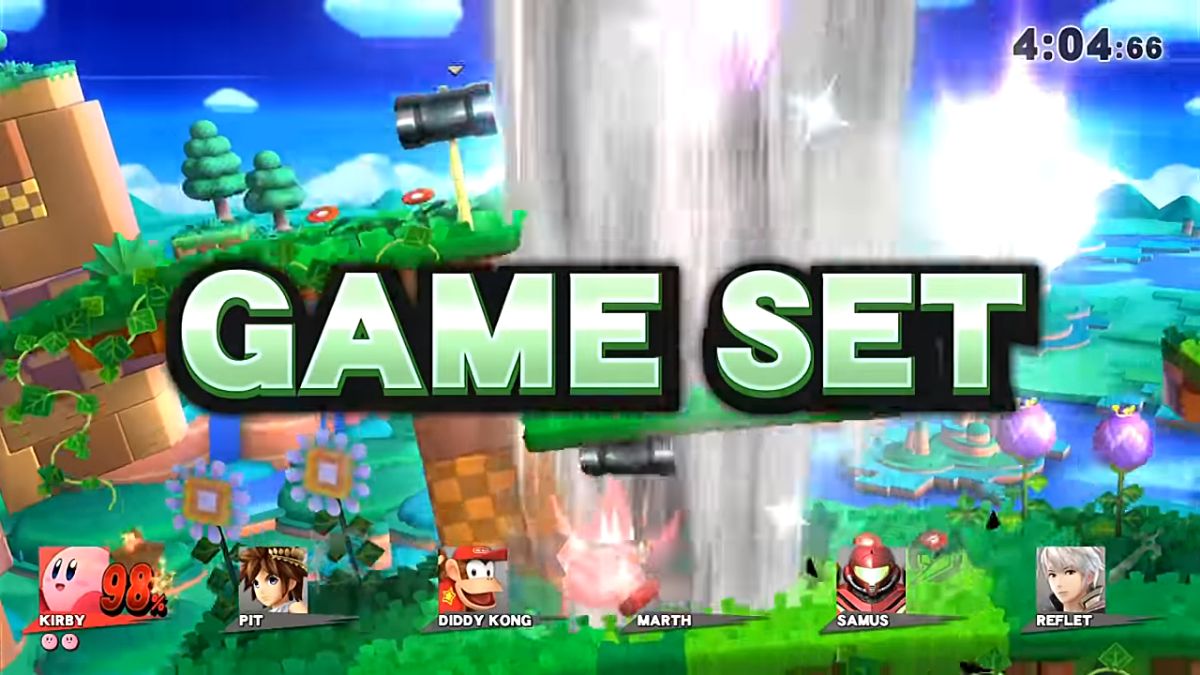
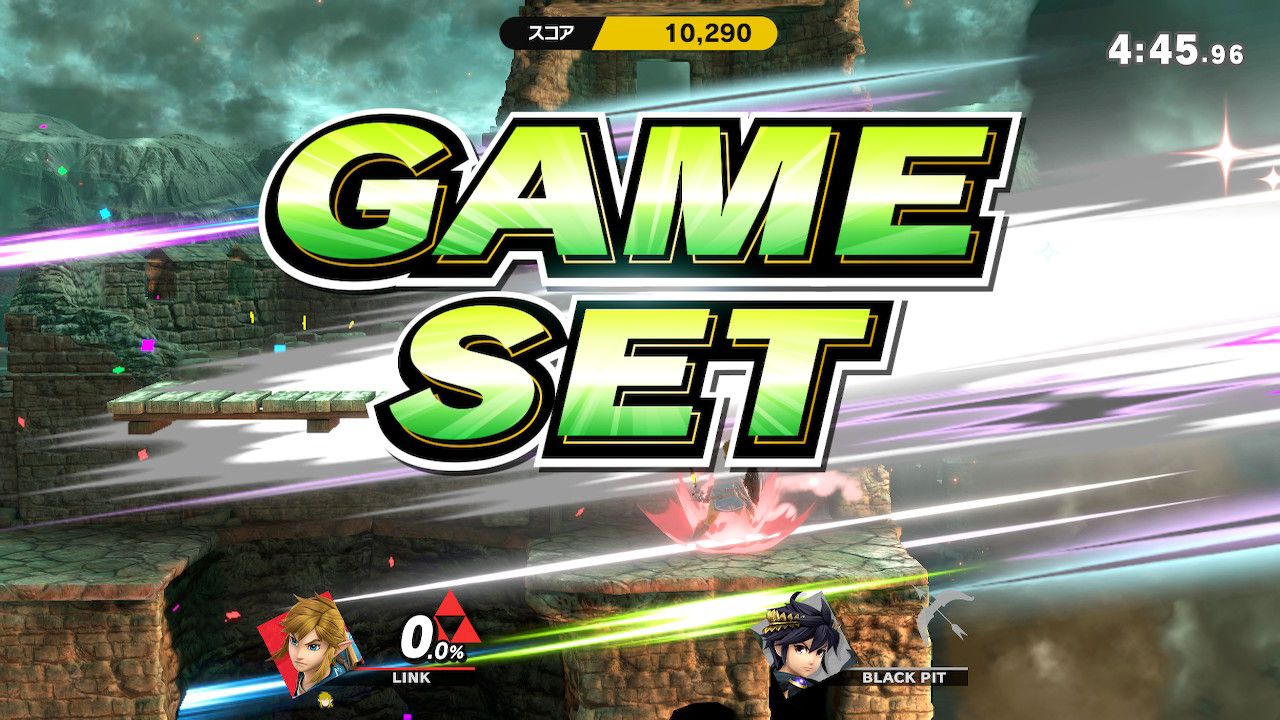
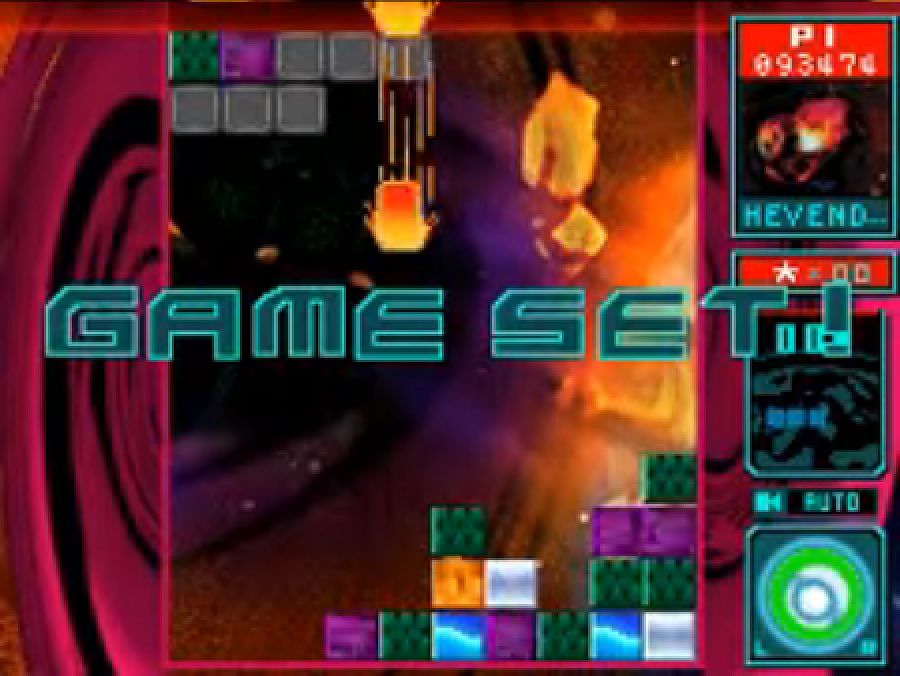
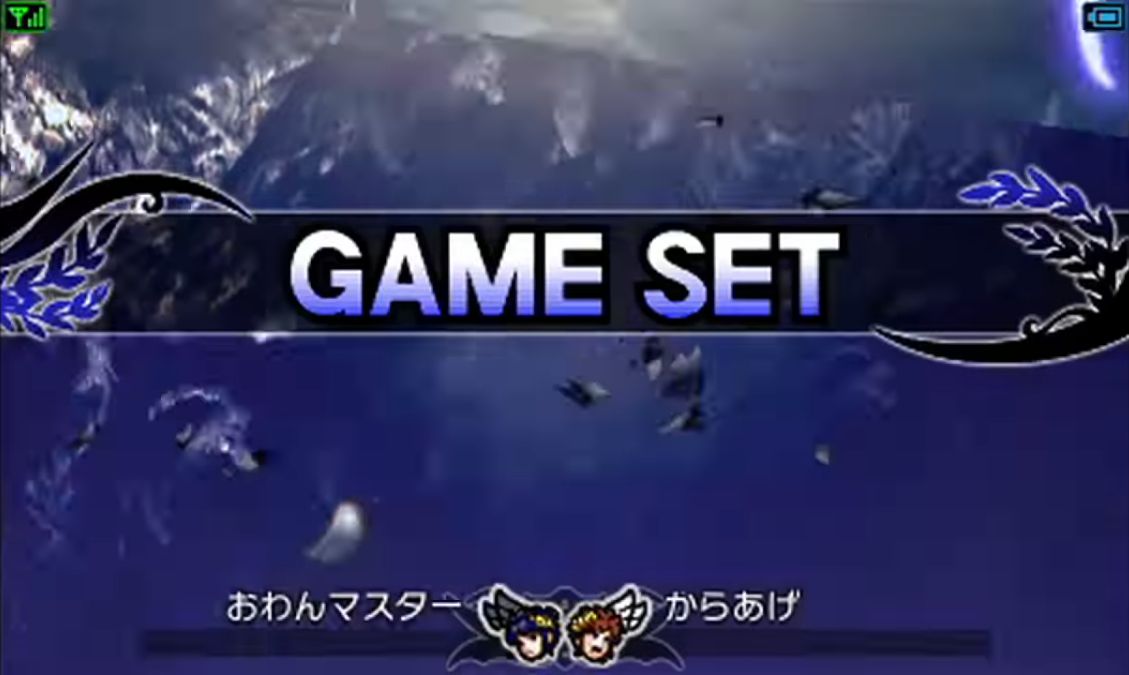
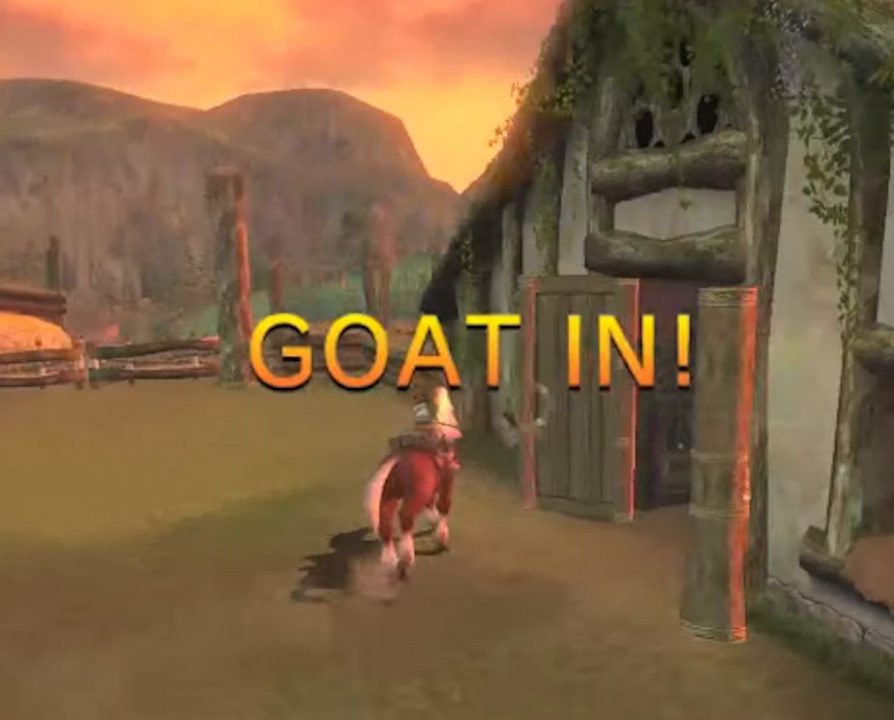
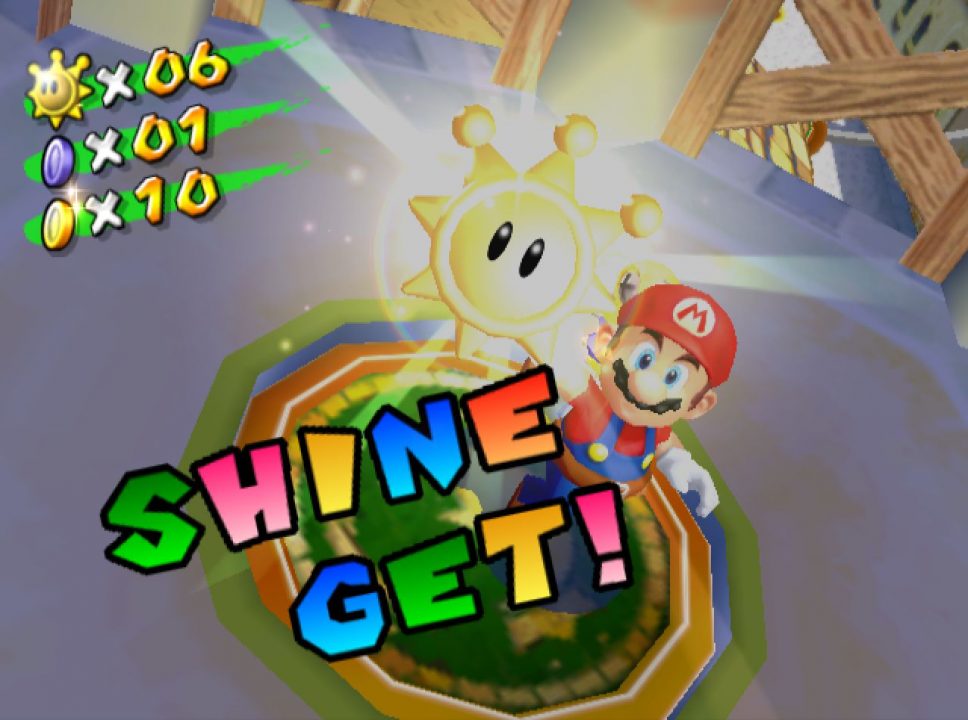
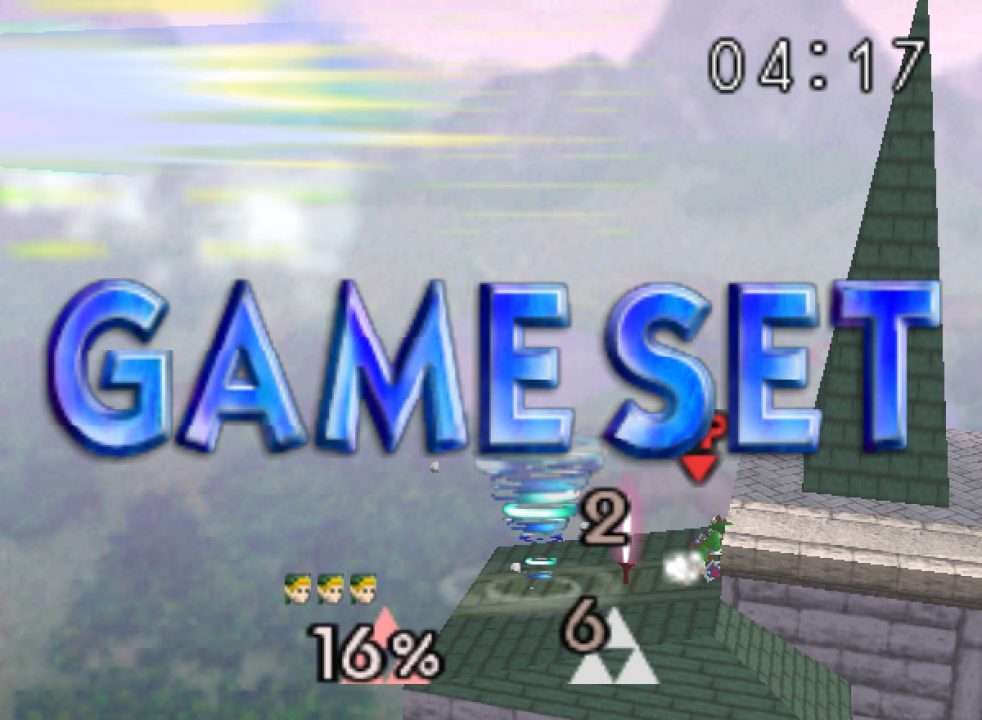
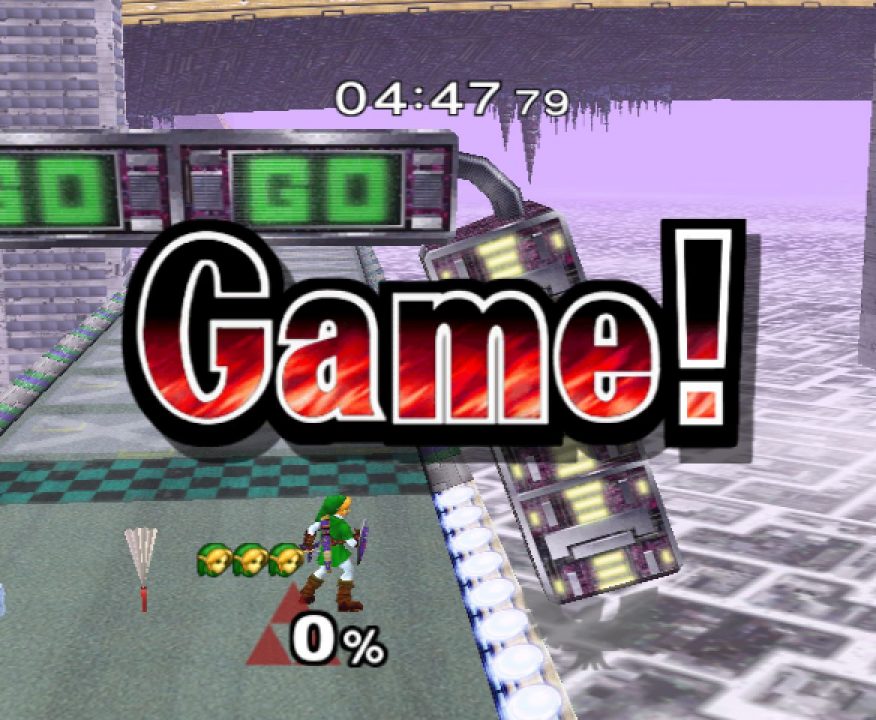
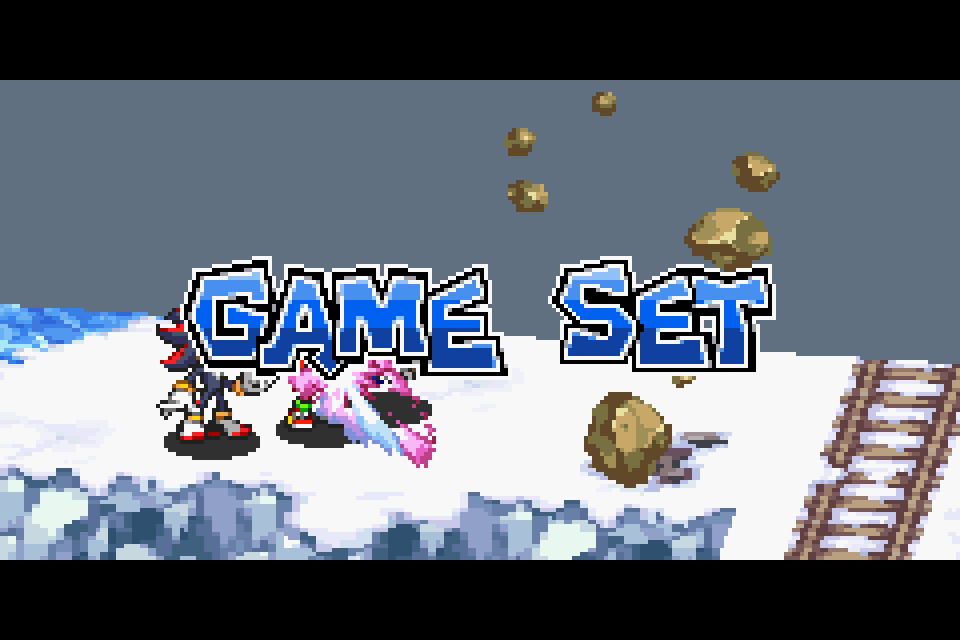
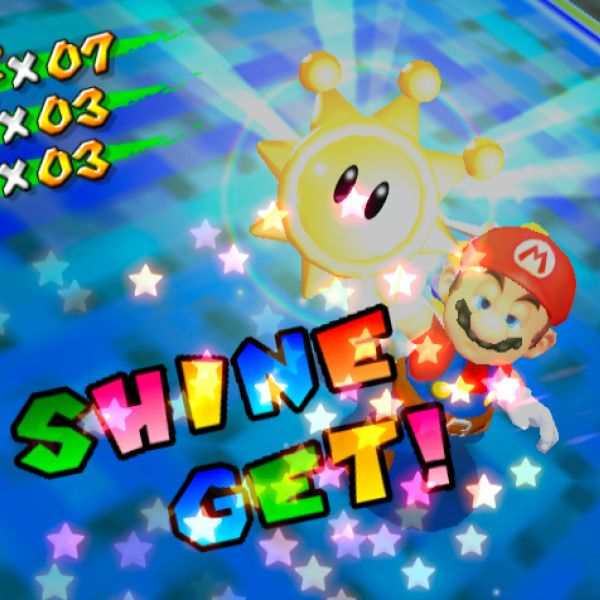
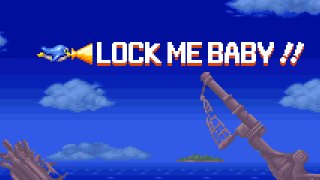
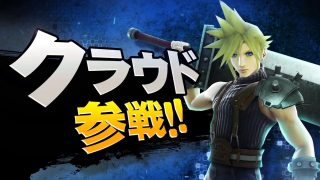
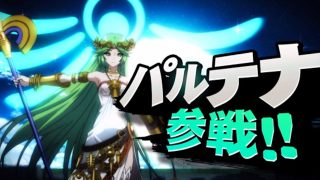
Puzzle de Pon (Puzzle Bobble-like for Neo Geo) has “____ get!” for all the zodiac signs.
Screenshot: http://www.zanyvideogamequotes.com/puzzledeponr/puzzledeponr-ariesget.jpg
That’s the version I always think of when I say “___ get!”, though I think most people would think of “Shine get!” first.
What do you call it when wasei eigo migrates back into English?
“What do you call it when wasei eigo migrates back into English?”
Confusing. 😛
“What do you call it when wasei eigo migrates back into English?”
Wasei-eigo level up?
I always felt that “Game set!” sounds more natural than just “Game!”, so I don’t understand the need to change it. Seems like unnecessary effort for some-thing that is potentially a downgrade in natural-sounding English.
With Smash Bros., the Japanese developers seem to think it’s natural enough for native English speakers to say it…
I think it’s because because a game and a set are two different things, so it’s weird for an announcer to say both words at the end of a game.
Pokemon Battle Revolution has the announcer say “Game, set and match!”
I used to wonder if “game over” was an example of wasai eigo, but the Wikipedia article seems to indicate that the phrase did originate from A US game (as early as a pinball game from the 1950s, I guess?)
The term “game over” was already in use by the late 50s – this pinball table from 1956 has it on the silkscreen, even though there wasn’t a light installed for it: https://youtu.be/a8bhsRh-aFk?t=166
“1-up” also originates from pinball – although with a different meaning; it was originally shorthand for “1st player up” (e.g. this 1963 table has both “1st player up” and “2nd player up”: https://www.ipdb.org/images/1901/image-12.jpg) – it got shortened by the mid-60s, as shown in this table from 1967: https://www.ipdb.org/images/213/image-9.jpg. IDK when it got associated with getting an extra life in a video game, though – the earliest I can think of is Super Mario Bros. Arcade games back then usually called extra lives just “extra lives” or “extends” or in case of shumps, “extra ships” and so on.
All the episode titles of Tokusou Sentai Dekaranger are in Wasei-Eigo, and the episode where they get SWAT mode is called “SWAT Mode On”. They also sometimes say “face on” when they morph.
That reminds me of a different sentai show with a different engrish-ism.
The rangers in Gobuster shouted “LET’S MORPHING” every time they transformed.
I loved Gobuster. This seems to be because I don’t actually like sentai shows, as every complaint the fandom had with it was something I liked. Oh well.
Japanese sure likes twisting English around to suit their own needs, huh? In general, the so-called ‘interface text’ tends to be in English in an otherwise Japanese game as detailed in my last reply. When they aren’t displayed like this, chances are it’s either a non-Japanese game or a game meant for a young audience. And even then, some of this text would be slightly changed anyway to be grammatically correct and the like once it’s time for localization. For instance, Personal 5 had ‘baton touch’ and ‘sword’ to be changed into ‘baton pass’ and ‘attack’ respectively. ‘Baton pass’ kinda sounds more natural in a way and since not every character even uses a sword for melee attacks in that game, it fits more closely. Do you have more example of this kind of localization in mind?
“Japanese sure likes twisting English around to suit their own needs, huh?”
Couldn’t have said it better myself, and I find it annoying at times. But if we were to twist Japanese (or any language for that matter) to suit our needs, we’d be accused of being racist because we’re not respecting their culture’s language. Riiiiiight, so what do these politically correct snowflakes call what Japan is doing to the English language? Here’s a classics response I’ve seen:
“They’re just being cute.”
Just wow. XD
…but English DOES do that. As an example, the word “chef” comes from French, where it means “leader”, but when borrowed into English it was only used in the context of kitchens, and eventually had its meaning get changed from “the head of the kitchen” to “one of the guys in the kitchen that actually make the food”. That’s twisting the original French pretty badly.
I like how “tycoon” comes from 大君, which referred to imperial princes.
Can’t wait for the day some PC culture group tells us that we have to stop using the word “chef” because we twisted it to mean something else, and offended the French in some invisible way no one actually cares about. XD
That’s not what “Politically Correct” means, but this isn’t the place for a political discussion.
Basically, you’re calling out people for assuming you’d be called racist in a situation that already exists where that doesn’t happen, so …
Wow, way to try and start something by ending in ellipses.
I wasn’t aware that that was “starting something”. When I do that I mean “It’s so obvious I shouldn’t have to explain it”.
What I was saying there was “the situation doesn’t exists, so you’re just making shit up.”
I think you’re reading far too much into it. I pretty much assumed they were joking since they ended it with a XD emote.
Now now you two, no fighting. It was only a mere jab, as Anonymous stated, nothing more. Let’s all try to get along here.
If you like, visit the ‘gratuitous english’ trope over at TVTropes.com. I’m sure you will plenty of examples to interest people like you. Of course, it’s not just Japanese works that’s being highlighted there. But overall, it’s pretty informative. That said, it’s sometimes difficult indeed to know what’s wasei eigo and what’s simply incorrect english. Better have the context in mind.
People like me? I know you’re not saying that to be mean, but you could you elaborate on that part? Pleeeeeease? @_@
Yeah, people who are very interested about English as used in Japanese works in general.
Ah, thank you.
You’re welcome.
“Anime” and “manga” are both twisted to mean things in English that they don’t in Japanese. “Animé” is a French and Japanese word used to refer to any animated cartoon from any country. And “manga” is a Japanese word that refers to any cartoon (still or animated) from any country.
And yet, in French, “animé” by itself is only ever used to refer to Japanese animation, often even spelled “anime” (without changing the pronunciation). To refer to any animated work regardless of origin, one usually uses the complete phrases “dessin animé” (film or series), “série animée” or “film d’animation”.
Soo… boomerang loanword?
If we’re going to talk about the english-speaking world being disrespectful to japanese culture, well, last time I checked America was trying to force western politics and moral sensibilities into japanese entertainment (look at Sony’s censorship policies, for example). I’d argue that’s far worse than incorporating some foreign words into your vocabulary with a different meaning from the original language it’s taken from.
I don’t know about “America forcing in Western politics and moral sensibilities” so much as Japanese companies / people bending to the desires of American audiences or companies, which is something that Japan unfortunately has a history of: Like, some Japanese prudishness and corporate culture was influenced by the west due to Japan’s desire to fit in with those civilizations, often to their detriment, considering that the west was heavily Christianized at the time, and too much of the U.S. still is.
I wasn’t aware that a country being… “Christianised” (odd way of phrasing it), as you put it, was a bad thing.
In fact, I’ll state clearly: it isn’t. Indeed, I would argue that the secularisation creep seen in the West today has done far more harm to the Western world than the Western world traditionally adhering to Abrahamic values and principles ever did.
But, you know… that’s just me. And loads of other disgruntled and in some cases (to varying degrees) downtrodden individuals.
This is a really bizarre take on something all languages do naturally. English has borrowed many words from other languages, and other languages have borrowed words from English and each other. It’s one of the places new words come from. Do you hate the word “skosh”? Finance? Caucus? Bother?
There’s no such thing as a pure language. That’s not how languages work.
The next time you’re enjoying some “hentai”, perhaps you might want to rethink that claim you just made about English speakers never twisting Japanese words to suit their own purposes. You might find an example staring you right in the face.
Is this astroturfing? This whole thread reads like astroturfing. It’s like the previous comment was written to set up this one, then the thread follows the classic pattern of “whoa don’t get offended PC police lmao” into “lol it was just a joke calm down” and finally the “why are YOU making this hostile?”.
If this is a genuine post from a real person, my question is this: what does it matter what anyone is doing with English? It’s a language, it’s not your girlfriend. I can’t understand getting so huffy about it.
Also, don’t you remember when every dudebro had kanji tattoos and the ravers had (usually gibberish) Japanese on half their clothes? We’ve done the same thing they’re doing plenty of times.
I don’t see the point of maintaining your high level of paranoia about this. English constantly adopts words from other languages and changes their meaning or uses them in innovative ways. Your complaint doesn’t fit the facts.
Maybe it’s because I’m an ESL, but I never found anything wrong with “game set”, yet I can see why things like “goal in” and “shine get” sound awkward.
Then again, maybe it’s because I’m not used to sports language; one comment here says that since “game” and “set” mean different things, having both in the same phrase is weird. Technically I know what both mean, but since I’m not that into sports or competitive video games, these words are not really part of my vocabulary when it comes to describing a match.
The closest native English equivalent for “Game Set!” in the baseball context I’ve heard was “That’s the game”, which did replace it in the localized versions of Wii Sports.
In the Japanese version of Twilight Princess it actually says “Get in!” instead of “GOAT IN!” when you get a goat in, which is…even more awkward. In beta English versions it said “YEE-HAW!” Honestly, there really isn’t a good short phrase for that action that doesn’t sound silly.
I’ve seen examples of Japanese games using “Get!”, like a Smash Bros. game which the localization changed to “Got It!”. Are there any examples of games saying just “In!”?
FYI, the “Japan’s love of the word “let’s”.” link is broken and links to this article instead of the intended one.
League Bowling on NeoGeo also uses “Game Set”.
I happen to be looking at some disk messages for a Japanese game right now, and they use the word Englishish word “set” (as セットする) for the action of putting a disk into a drive. 「ドライブ0にユーザーディスクをセットして下さい」(“Please set the user disk into drive 0”), for example. I wondered if that usage might be related to “Game Set,” but the 三省堂 dictionary defines セット as referring to arranging or configuring something, rather than confirming or concluding it, so I guess not.
There’s also Japanese games that say “Time over” when you run out of time.
Capcom VS SNK 2 was the first game that came to mind, and there are probably plenty more fighting games that use the phrase.
The Sonic games with 10 minute per level time minutes (Sonic 1-3K and possibly Mania also) show this message as well.
*limits, sorry
Yeah, it’s annoying that you can’t alter your own messages after they’ve been posted… And it’s such a basic feature too.
Had to think of Dissidia: Final Fantasy for the PSP when I read this. In the English dub, Tidus’s Ex Burst has him exclaim “Game set!” at the end of his attack (https://www.youtube.com/watch?v=4NX4NJFVrf8) and sure enough, it was there in the Japanese version, too (https://www.youtube.com/watch?v=-jS0WR-cqXQ).
“Game set” as a phrase also never struck me as odd but that may be because I’m not a native English speaker.^^”
I think this is actually *not* related to “Game, Set, Match”.
I think this is due to a misunderstanding of English by Japan-based localizers in the early days. “Set” is a verb that has often been misused in game and app UIs, usually used where you might get a “Done” or “Continue to next phase” sort of button/message.
Sometimes you get “Setting” instead. I once used a development tool that had a long process you could start, and then you’d get a popup window with text along the lines of “Doing the thing!” and a button in the lower right that said “Setting”. You’d sit there and wait ages and nothing would happen. Then, with no other option, you’d try clicking the button that seemed to be for options, but instead that button would actually finally start the process, because the person who translated it thought “setting” meant something like “set it in motion”, or something, I really dunno.
It occurs to me that programmers probably come across the English words ‘set’ and ‘get’ as a common pair, because of setters and getters. I don’t know whether that could have influenced UI developers, though.
Indeed. It’s probably a lot like the common “Reward Get!”
in the context you described, wouldn’t it mean that the matches would start with “game set” since it’s what put them into motion?
Fun fact, Scribblenauts used “_____ get” even though it was made in the West. Maybe they were just being cute (wow XD)
Same happens with medals you can get in games over at Newgrounds actually. MEDAL GET! Rather satisfying actually…
There’s also “Bandage get!” in Super Meat Boy, and if memory serves, Bit Trip Runner 2 features the phrase “Bonus get!”
Yeah, you can tell someone’s weeb when such things starts popping up in your games. Speaking of, do you think Mato should do an article about this? Being a fan of Japan’s of course a good thing but when this ‘obsession’ gets into weeb territory, it can hardly be called anything else than pretentious.
MegaMan Network Transmission on Gamecube is one of those games that had its text translated, but had a bunch of Japanese voice acting left as-is in the English release. Every time MegaMan picks up a battle card, he says “Card get” in English (Obviously it’s more of a “caa-do getto”, but you know what I mean). That line always comes to mind when I hear about the “___ GET” thing, haha. I think it may have been my first exposure to it. Interestingly, it didn’t take me long at all to understand what he was trying to say back as a young 11-12-year-old!
I always thought that this phrase was a little weird, but like… it’s not MORE weird than “Game, set, match” to me, as they both make about as much grammatical sense and I don’t know sports very well at all. I just figured they both mean something like “That’s the game”.
I’ve never been a fan of seeing “__ get!” kept in English, as it could easily be changed to “Got __!” and avoid being awkward.
P.S. You’ve been writing a lot of articles lately Mato, which is really nice to see, but I’m wondering if you have any bigger projects coming up or if you’re going to go back to Sword Art Online at all? (Honestly, I don’t think you need to go back to SOA, as you’ve done a very good job collecting examples that display the consistent issues in the translation.)
“Game, set, match” is from tennis, where a match is composed of many short games. Slightly simplified: The first player to win 6 games wins that set, and the first player to win 3 sets wins the whole match. So at the end, when a player makes the winning point, they win that game, set, and match.
The wasei eigo seems to be, essentially, “[The result of the] game [has now been] set”.
I like your suggestion of “Got __!” as a more native English way of saying the same thing.
The French translation of “GAME” in the Smash series was translated as “FINI” (which means “Finished”). That makes more sense to be honest.
Although the translation of “Mii Brawler” Is “Le boxeur Mii” (which means “Mii Boxer”). Kind of an odd translation, since the Mii Brawlers use their fists to fight and don’t wear boxing gloves. Not sure why “Le bagarreur Mii” wasn’t used.
On the topic of foreign-derived English being reimported, with imageboards, a “GET” is when a post ID has an unusual or visually appealing number sequence, e.g. 123456 or 666666. GETs are basically synonymous with 4chan these days but they originated with 2channel, a Japanese textboard and one of the earliest.
Too bad 2chan’s basically locked to foreigners… Imagine all the fun conversations to be had there.
VPNs, proxies, and tor make it possible (I think; they may have been banned by now), but I guess that just restricts it to the intersection of foreign Japanese speakers with the know how to set that up.
I remember what a pain it was to set up a Nico Nico Douga account back in the day, after it moved off YouTube, and having an account was required for basic access.
I received a notification of a post from user “bork” that isn’t showing up here. His text was as follows:
“average people don’t know how to set up vpns?
with vpn gate i thought it became much more accessible.”
My response:
While using “canned” VPNs these days is far easier than setting up, say, bare IPsec, I think they’re still rather out of reach of the normal person, well, at least in the US. Looking up usage estimates, I see figures in the 17-25 percent range worldwide, which is higher than I expected. I would have guessed 5-10 percent. China brings up the worldwide average. With the recent amendments to the EU Copyright Directive, I’d expect VPN usage to steadily rise in Europe. Therefore, geography obviously matters.
for some reason Star Fox 64’s “RANK IN!!” comes to mind when getting a high score
In other language versions of the games with “Game Set!” in Japanese releases, the English ones as you said, have “Game!” instead of “Game Set!” for most games. Most of the other language settings outside of Japan and English have “Game Set!” translate to “The End!” or “Finish!” For example, in the French language setting since Super Smash Bros. Brawl, the announcer says “Fini!” when the match is over. “Ende(En-dah)! is the German version of “Game Set!” meaning “The End!” The Spanish announcer as of Super Smash Bros. Brawl says “¡Se acabó!” meaning “It’s over!” KLAAR!, the Dutch version of “Game Set!”, means “Finish!” The reason why foreign announcers say “The End!” or “Finish!” for “Game Set!” is because the crowd knows that it is “The End!” of the fight. By the way, “Fini!” is French for “Finish!”
Smash 64 is one of the games I grew up with and honestly, I’ve never found “Game Set” awkward-sounding because I’ve always interpreted it as a shortening of “The game is set”, basically that the game has been decided. I’ve always thought it sounds unnatural how the announcers just say “Game” in newer Smash games, just that single word, and I prefer “Game Set”.
i always thought of it as “the game is set” too!
like a sport, and since smash bros is basically sumo, it’s very fitting.
“game” is the one that sounds like broken english to me, maybe because i’m not a native english speaker.
I guess it’s meant to be like “that’s the game!”, but it sounds a little dumb like that ( to me ).
it’s like an incomplete sentence
The most famous “__ get!” is ポケモンゲットだぜ
めざせポケモンマスター – YouTube
https://www.youtube.com/watch?v=54Ra3mURKgs
I always thought of it like a short version of “the game is set!”, it’s a bit weird to me that people find issues with this kind of small thing
if anything it makes it so stylish!
like, in yokai watch keita says “Medal Set On!!”, it’s like a short version of “the medal is set, power on!” focusing on the main words
but in english it’s the clear and cheesy “yokai watch, do your thing!” not only it loses all of its Oomph but also becomes annoying ( almost cringy ) after listening to it too many times.
fun fact, in portuguese “game set” was translated as _____!!
which means _________
( just a joke, nintendo never localizes games to portuguese )
My first encounter with “____ get” was a sort of double-trouble localization experience.
There was a Ninja Turtles game from the PS2/Xbox/GameCube era where grabbing a scroll item produced the message “MAKIMONO GET!”
As the game didn’t translate “makimono”, just wrote out the romaji, this was even more confusing than it might have been: a transliterated foreign word in an unfamiliar phrase.
Nice to see someone else remembers Meteos! That game is AWESOME.
I’m very late to this discussion, but I was under the impression that this phrase must have come from tennis.
In tennis, if you win 4 points then you win a game, 6 games and you win a set, and then 3(ish) sets and you win a match. So when announcing scores, if a player wins a game that results in a set, the announcer will say “game, set.” If a player wins the entire match, they’ll say “game, set and match” (or game, set, match).
My impression was that the Japanese just shortened the “match” part to be understood and then applied it to a wide range of other sports for some reason, since that’s the only place I’ve heard “game, set” in English!
That’s exactly what I thought for the same reason: the words aren’t known to go together in English anywhere else!
I think you are probably right that is where it came from. Set (noun) is a relatively rare word in English, so the Japanese thought it was set (verb, as in concrete) and used the shortened phrase to mean “The game’s outcome is finalized”.